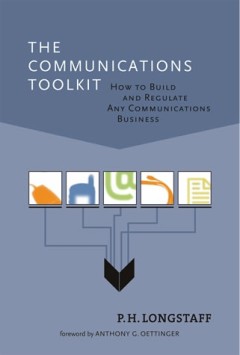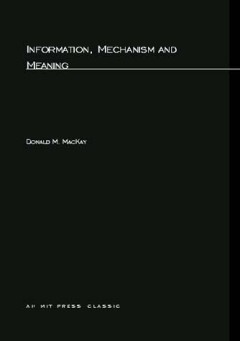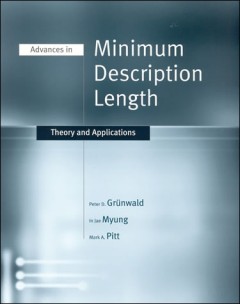Filter by

Machine learners :archaeology of a data practice
Machine learning - programming computers to learn from data - has spread across scientific disciplines, media, entertainment, and government. Medical research, autonomous vehicles, credit transaction processing, computer gaming, recommendation systems, finance, surveillance, and robotics use machine learning. Machine learning devices (sometimes understood as scientific models, sometimes as oper…
- Edition
- -
- ISBN/ISSN
- 9780262342551
- Collation
- 1 online resource (xvi, 252 pages) :illustrations
- Series Title
- -
- Call Number
- -

The Communications Toolkit: How to Build and Regulate Any Communications Busi…
A toolkit of basic principles to help those in business, industry, law, and other professions deal with a constantly changing communications sector. OCLC-licensed vendor bibliographic record.
- Edition
- -
- ISBN/ISSN
- 9780262278539
- Collation
- 1 online resource (xiv, 271 pages) :illustrations
- Series Title
- -
- Call Number
- -

Information, mechanism and meaning
A collection of selected papers written by the information theorist and "brain physicist," most of which were presented to various scientific conferences in the 1950s and 1960s. Most of this collection concerns MacKay's abiding preoccupation with information as represented and utilized in the brain and exchanged between human beings, rather than as formalized in logical patterns of elementary p…
- Edition
- -
- ISBN/ISSN
- 9780262256605
- Collation
- 1 online resource (viii, 196 pages)
- Series Title
- -
- Call Number
- 001 MAC i

Advances in minimum description length :theory and applications
A source book for state-of-the-art MDL, including an extensive tutorial and recent theoretical advances and practical applications in fields ranging from bioinformatics to psychology.The process of inductive inference--to infer general laws and principles from particular instances--is the basis of statistical modeling, pattern recognition, and machine learning. The Minimum Descriptive Length (M…
- Edition
- -
- ISBN/ISSN
- 9780262274463
- Collation
- 1 online resource (x, 444 pages) :illustrations.
- Series Title
- -
- Call Number
- -

The information manifold :Why Computers Can't Solve Algorithmic Bias and Fake…
OCLC-licensed vendor bibliographic record.
- Edition
- -
- ISBN/ISSN
- 9780262355179
- Collation
- 1 online resource (408 pages).
- Series Title
- -
- Call Number
- -

"Raw data" is an oxymoron
We live in the era of Big Data, with storage and transmission capacity measured not just in terabytes but in petabytes (where peta- denotes a quadrillion, or a thousand trillion). Data collection is constant and even insidious, with every click and every "like" stored somewhere for something. This book reminds us that data is anything but "raw," that we shouldn't think of data as a natural reso…
- Edition
- -
- ISBN/ISSN
- 0262312328
- Collation
- 1 online resource (vi, 182 pages, 10 unnumbered pages of plates) :illustrations (some color).
- Series Title
- -
- Call Number
- -

Low-density parity-check codes
"MIT Press.""This is a complete presentation of all important theoretical and experimental work done on low-density codes. Low-density coding is one of the three techniques thus far developed for efficient communication over noisy channels with an arbitrarily low probability of error. A principal result of information theory is that if properly coded information is transmitted over a noisy chan…
- Edition
- -
- ISBN/ISSN
- 9780262256216
- Collation
- 1 online resource
- Series Title
- -
- Call Number
- -
 Computer Science, Information & General Works
Computer Science, Information & General Works  Philosophy & Psychology
Philosophy & Psychology  Religion
Religion  Social Sciences
Social Sciences  Language
Language  Pure Science
Pure Science  Applied Sciences
Applied Sciences  Art & Recreation
Art & Recreation  Literature
Literature  History & Geography
History & Geography